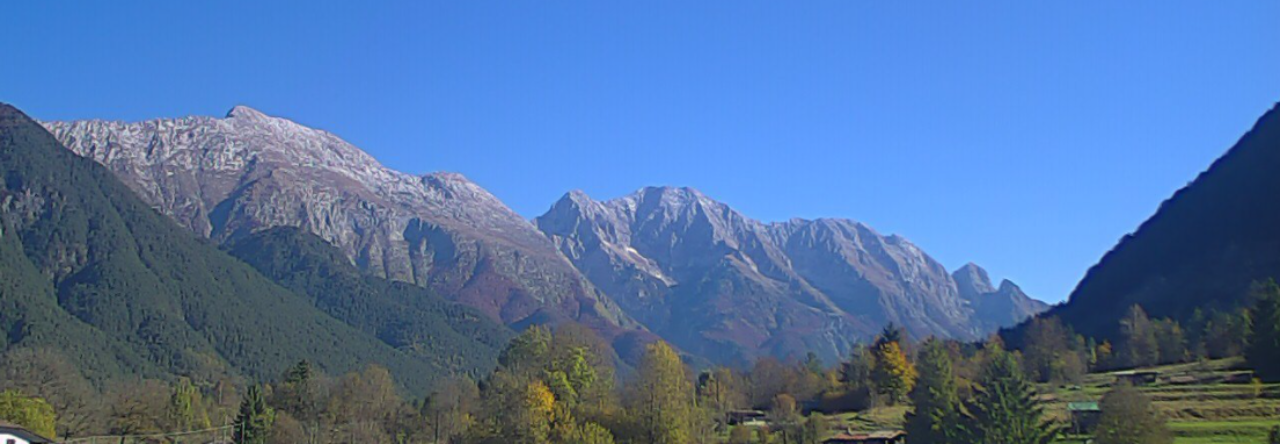For some time now we have started collaborating with independent scholars, to study the Resian language more thoroughly. Our continuous research has identified, interesting elements in Resian and various archaic features both in the grammar, in the lexicon and in Resian phraseology. The study served first and foremost to reveal some peculiarities that were still unknown. Despite many declarations, until now we have always heard of the similarity of Resian with a foreign language, but we have not read articles that clarify the many particularities and curiosities of the Resian language.
By doing continuous in-depth work, we also found elements of similarity with Russian. This doesn’t prove that the Resians are Russian, but it reveals a close proximity to their ancient Slavic language. On our identity, Baudouin de Courtenay in the report to the Acts of the IV International Congress of Orientalists (Florence 1878) also wrote: In a similar manner we can prove, that the Resians are not Bulgarians, nor Serbo-Croats in the strict sense, etc., and they represent, from a glottological point of view, an independent Slavic lineage.
The scholars we collaborate with have found the words particularly interesting:
bö́holo < bö́how lok ‘divine bow, rainbow’;
Bohow din – ‘divine day, Sunday’;
prëdnën < prëd dnën – ‘before the day, = early morning’;
töčikej < v toliče kej (<toliko, ‘a little’), ‘in a little = just a little while ago’;
počasu < po času, ‘according to time, = slowly’;
wdümu < w dümu, ‘in the smoke, = quickly’ (i.e. run so much as to raise the dust, like smoke)’.
They learned the expressions:
në morët gha vïdët, to hate, (see ‘nenavidet’ = ‘to hate’; in Russian, Czech, Slovak, Polish);
tet śa tin, ‘go behind that, take an interest’;
tet na-ta prit, ‘go forward, continue’;
to prïdë raćet ‘that’s to say, that is’.
They met the adverbial formulas for the beginning of tales:
tadaj dän din, ‘then one day, one time’;
prit nu prit, ‘before and before, one time, a long, long time ago’;
nur, ka to bëše, ‘once upon a time’.
We have identified these phrases, which are familiar and common even to the Russian ear:
Buh dej no lehko nuć, in Russian ‘Боже, дай нам легкую ночь/Bože daj nam legkuju noč’- = God give us a light night, Good night;
Spïtё lёpu, in Russian ‘Cпите xорошо/ ‘Spite horošo’, = Sleep well, Good night!
Dёlitё döbär vijäč anu stüjte lёpu śdrow!, in Russian ‘Cчастливого пути и оставaйтесь в добром здoрoвe/ Sčastlivogo puti i ostavajtes’ v dobrom zdorove! = Have a good trip and stay in good health!
Maróka! (excl.: damn, wow!), In Russian ‘морока/moroka!’: excl.: damn! wow! [Baudouin de Courtenay 1895:339; Maróka!, ropotä́n anu uštinän ‘Damn! Quarrelsome and stubborn’.
They found our proverbs very interesting, I quote one in particular:
Vinče ghrében nu ku patalèn, ‘The cock’s crest is bigger than the cock = more smoke and less roast’.
They focused in particular on our way of expressing spatial relationships (position and direction of movement), using compound prepositions:
ta-na Bile (to Resiutta/at Resiutta), tu-w Bile (to San Giorgio/at San Giorgio), ta-na Ràvänze (at Prato), ghorë́-na Ravänzo (go up to Prato), dö-w Ghumḯn (go down to Gemona), etc.
In short, we have undertaken an interesting and profitable collaboration, that also demonstrates that the Resian language is not of Slovenian origin, nor of the pro-Slovenian Italian Slavists, but of the Resians.
WÀDLO – a term that has disappeared from Resian; WÀDLO – withered, dried up, drooped, flaccid.
I found this word for the first time in a Slovenian writing which cited it as belonging to the Resian language, without however indicating its meaning, neither in Slovenian nor Italian. Very curious, I asked all my friends for information Resians, even my mother who was born in 1929, but no one had ever heard of it.
One day, by chance, while I was reading the text of Baudouen de Courtenay Materialien I (1895) to
my great joy, my search was finally over, I found the term I had been so keen to find.
In folder no. 723 we read: Trébi dažŋá. Wsœ čísto wádlo, sǘho****) ‘There is a need for rain. It’s all withered, dry.’
In the Materialien I Baudouin de Courtenay translated the Resian texts into German and therefore I was able to read Man braucht den Regen. Alles ist durch und durch verwelkt (welk), trocken****) and fortunately verify its meaning: ‘Rain is needed. Everything is completely wilted dry’; with the footnote reference: **** “Flapp”.
So it is established: WÀDLO, is a term from the Resian language with the meaning of ‘withered, wilted, drooped, flaccid’. The regret remains for a precious loss in the lexical register of the language resiana: but fortunately the term wádlo has not disappeared completely, because it has been saved in the form t’ë sa śawàlilo ‘has felted’. It can be deduced that wadlo is the adjective derived from a hypothetical verb *wadlet; in our case from *(sa) wadlet ‘dry up, shrivel up, felt’, hence comes the expression – ‘has felted’, derived.
